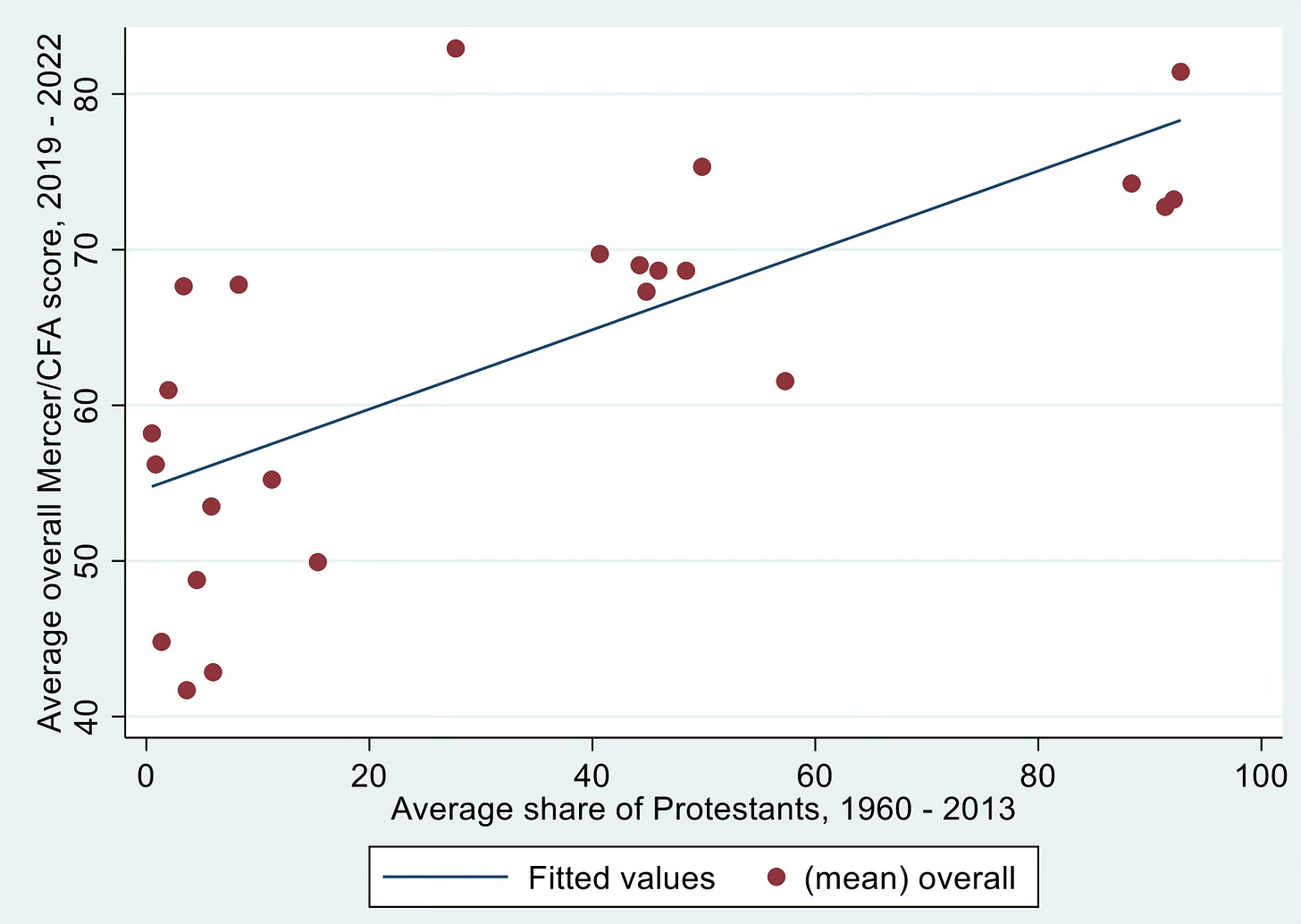One of the most contested notions of famed German sociologist Max Weber is his theory of the ‘Protestant work ethic’. In essence, his theory says that Protestants, as opposed to Catholics and adherents of other religions, are more productive because their religious beliefs focus on the deeds done in life and consider prosperity in business a sign of being favoured by God (I am oversimplifying, but you get the idea). While sociologists have defended the theory over the last hundred years, economists have generally derided it as not based on data. However, one thing economists do not dispute is that religious beliefs influence financial decisions.
Moshe Milevsky and Marcos Velazquez have identified one area where there is an advantage to being a Protestant, or at least living in a heavily Protestant society. They document a statistically significant relationship between the share of Protestants living in a country and the quality of the pension system in that country.
Countries with higher Protestant population share have better pension systems
Source: Milevsky and Velazquez (2023)
While they don’t claim that there is such a thing as a Protestant work ethic or a Protestant retirement ethic per se, they theorize that better governance and regulatory oversight lead to better pension systems. Also, in their view, the Protestant focus on frugality and success in business may lead to better funding ratios for pension funds.
Or, they may have just discovered one of the thousands of cases of spurious correlation in the world and are trying to find an explanation where there is none.





When you have large cultures/people groups who have studied and meditated on biblical verses such as Colossians 3:23-24 below, and have taken such verses to heart as if they actually, truly came from their Lord, and not just a book of good ideas, you may begin to understand how this difficult to quantify truth is so.
Colossians 3:23-24:
Whatever you do, work heartily, as for the Lord and not for men, knowing that from the Lord you will receive the inheritance as your reward. You are serving the Lord Christ.